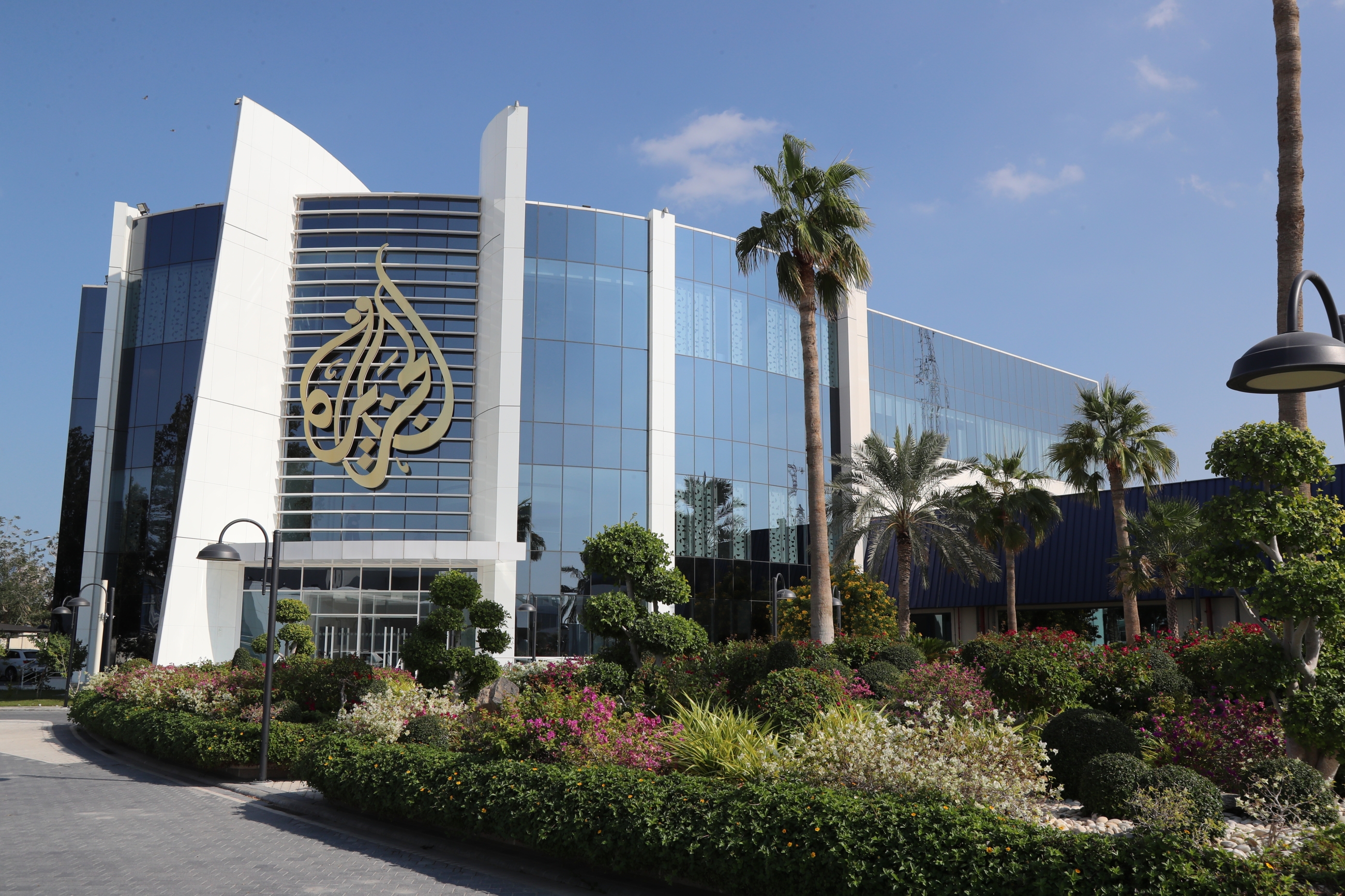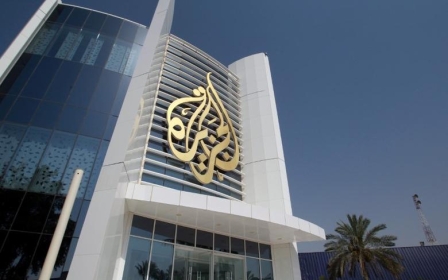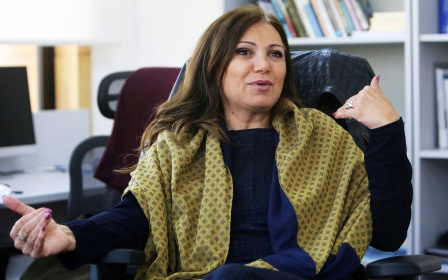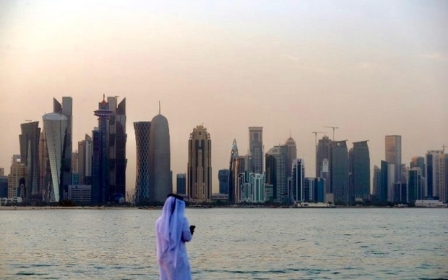REVEALED: The real reasons why Qatar shut down Al Jazeera Turk

When Al Jazeera Turk website was launched in January 2014, one of the very first stories that it published raised a few eyebrows in Ankara.
The lead story announced that four ministers from then-prime minister Recep Tayyip Erdogan's government had been formally charged by the police in a corruption inquiry. Turkish media outlets were silent on the news, and it was only Al Jazeera Turk that dared to publish such content amid an internal power struggle within the state.
For Turkish officials it was particularly odd, because the idea to establish a Turkish Al Jazeera was born in 2011 during the Arab Spring to domestically back Erdogan's government when he did not have a lot of allies in the Turkish media. Instead, they believed, Qatar government's media arm had been creating problems.
Now, almost three years after its closure in 2017, AJ Turk's former editor-in-chief Gurkan Zengin tells Middle East Eye that the project to launch a 24/7 news channel along with a digital platform might have been shattered due to international politics.
"Al Jazeera has never explained internally why they changed their minds on establishing the channel after all this investment," he said. "But it is plausible to think that they might have not wanted to continue a media investment that could put their relations with Ankara at odds."
New MEE newsletter: Jerusalem Dispatch
Sign up to get the latest insights and analysis on Israel-Palestine, alongside Turkey Unpacked and other MEE newsletters
One former senior editor told MEE that Qatar has spent around $75m on Al Jazeera Turk. AJ Turk's Twitter account had nearly one million followers before its closure.
Turkey and Qatar established a regional alliance during the Arab Spring. Both countries were supporting the democratic popular protests and subsequently elected governments. Their relations deepened after a blockade imposed on Qatar by regional countries led by Saudi Arabia and the United Arab Emirates in 2017.
Turkish officials told MEE at the time that Turkey's deployment of troops in Qatar prevented a palace coup that would have toppled the government there.
Several former officials and former employees interviewed by MEE on the subject said that the trouble began to brew during the 2013 Gezi Park protests that directed popular anger against the Erdogan government. The protests spread all over the country, and the centre of Istanbul was seized by groups of activists where Turkish police had no control.
One senior editor who used to work at AJ Turk said that Al Jazeera English, in the first few days, supported the protesters and was harsh in its coverage of Erdogan.
"This very much killed Ankara's trust in Al Jazeera. Eventually the government began to work on an English language news channel on its own, which is TRT World," the editor said.
AJ Turk walked a thin line for several years with the expectation that the TV channel would also be launched soon. However, Turkish officials spoken to over the years were not very excited about it. They gave the impression that they would not like what AJ Turk would broadcast.
Qatari trademark
Qatar also had its own reasons to close AJ Turk.
A source with information on the internal dealings of the Qatari government told MEE that with Qatar's Emir Tamim bin Hamad Al Thani's rise to power in 2013, the media strategy changed. Under American pressure, the source said, Al Jazeera strategically changed its editorial tone, downgraded its operations and eventually shut down AJ America in 2016.
Zengin agrees that 2013 was a turning point due to the heavy blow the Arab Spring suffered in Egypt. Qatar has always been known as a Muslim Brotherhood backer, and its client in Cairo was deposed. It was also clear that the region was heading in a different direction.
"The royal family deeply cares about the Al Jazeera trademark. If they have a weight in the international stage it is because of Al Jazeera, not because of their gas reserves," he said.
"They were always sensitive about protecting it. The Qatari administration possibly behaved in a way that allows it to preserve the Al Jazeera brand and not upset the strategic relationship with Turkey."
Burhan Koroglu, former chairman of Al Jazeera Turk, told MEE that internal changes within Al Jazeera headquarters and external pressure by regional governments played a role in the closure.
"The main objective of Al Jazeera Turk was to create an influential regional TV channel based in Istanbul," he said.
"Qatar, as a state, decided back then that Al Jazeera had grown too quickly and decided to downsize it. Pressure from Saudi Arabia and UAE, including putting AJ at the top of the list of demands given to Qatar [to end the Gulf rift], might have played a role."
'Nothing personal'
Even though AJ Turk wasn't formally launched until 2014, it had been hiring journalists and testing content since 2011.
Some 15 journalists who were associated with the channel supported the Gezi Park protests and were making their stance clear through their tweets.
"And then they got fired," the former editor said. "Because, even though some say Al Jazeera Turk was independent, it had always been careful in its dealings with the Turkish government."
Koroglu, however, had a different opinion on the matter.
"Al Jazeera is quite independent in its media strategy," Koroglu said. "Turkish officials always criticise Qatar because of the AJ editorial line, while Qatari officials always respond that it is the nature of the business, and nothing personal."
Three years later, Al Jazeera continues to be a source of irritation for Ankara. Last November, Turkish public news broadcaster TRT and its sister English channel TRT World simultaneously began to criticise Al Jazeera for its editorial stance on the ongoing Turkish offensive in northeastern Syria.
TRT accused Al Jazeera of providing a large platform for analyses it said were anti-Turkey, and railed against its quoting of Mazloum Abdi, commander of the Kurdish-led Syrian Democratic Forces militia that Ankara has been fighting as part of its "Operation Peace Spring" offensive.
Al Jazeera declined to comment when contacted by Middle East Eye. Qatar's embassy in Ankara did not respond to MEE's requests for comments.
Koroglu still believes that had AJ launched the TV channel, it would have helped better introduce the Turkish public to Qataris, who are usually perceived with suspicion in Turkey.
"There were many Al Jazeera staff members who agreed with me on this," he said.
This article is available in French on Middle East Eye French edition.
Middle East Eye delivers independent and unrivalled coverage and analysis of the Middle East, North Africa and beyond. To learn more about republishing this content and the associated fees, please fill out this form. More about MEE can be found here.




